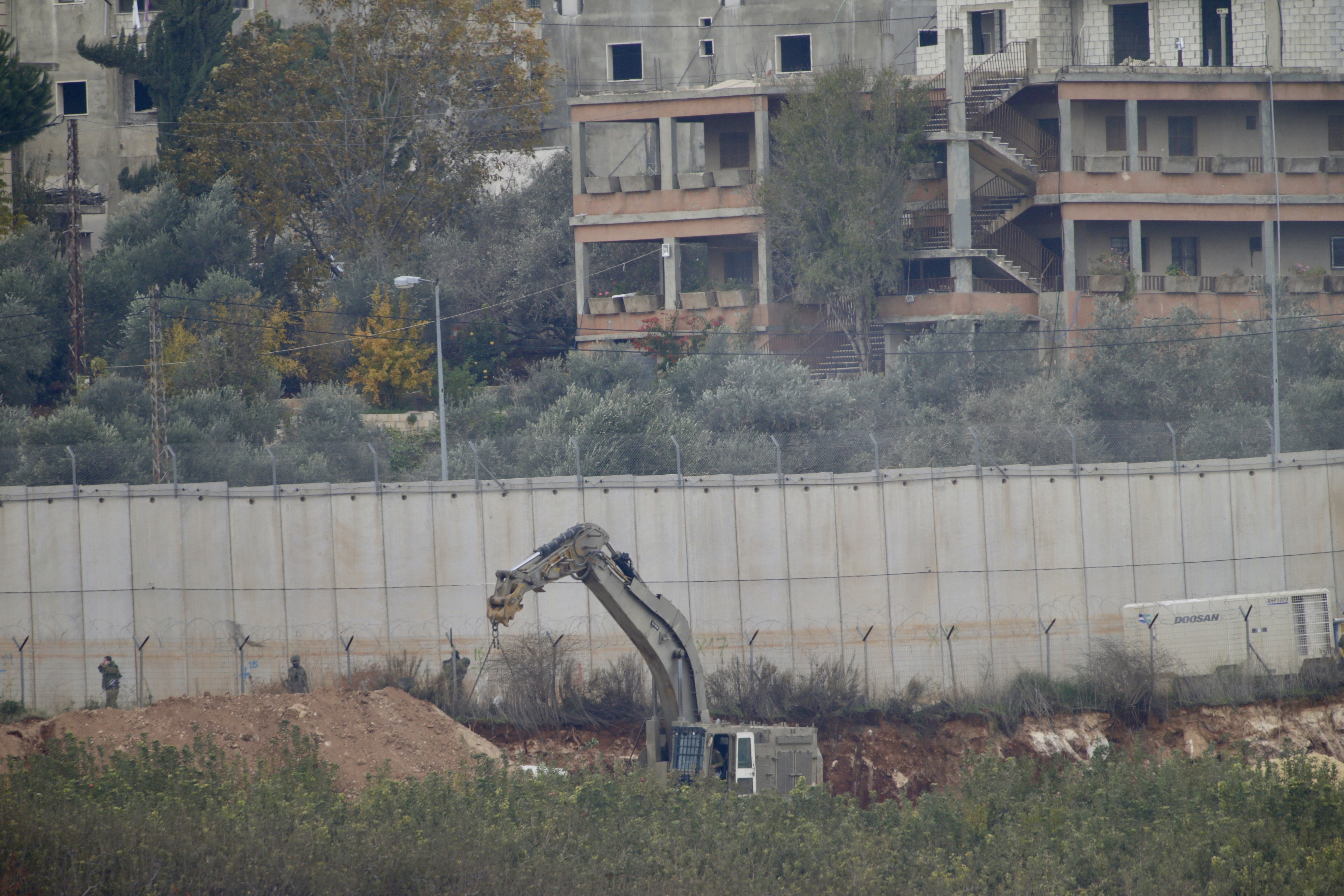
The Israeli military launched an operation Tuesday to “expose and thwart” tunnels it says were built by the Hezbollah militant group that stretch from Lebanon into northern Israel.
The military said the tunnels are not currently being used by militants and that its work to find and neutralize them was taking place inside Israeli territory. However, the Israeli operation could heighten tensions between Israel and its Iran-backed foe, which have both been preoccupied with other conflicts since their last conflagration more than a decade ago.
“We see Hezbollah’s activities as a flagrant and blatant violation of Israeli sovereignty” and U.N. resolutions, said Lt. Col. Jonathan Conricus, a military spokesman. “This activity is another example of the negative effects of Iranian entrenchment in the region.”
The military did not disclose how many tunnels snake into Israeli territory from Lebanon or reveal details of the operation, which it said could last for weeks. Reinforcements were sent to the border, and later Tuesday, the military said the first tunnel had been uncovered, running from a private home in the Lebanese village of Kfar Kela, and would be demolished.
Conricus said the tunnel, outfitted with electricity, a ventilation pipe and a communication cable, was about 200 meters (220 yards) long, at a depth of 25 meters (80 feet) and about 2 meters (6 feet) high.
The tunnel’s exit point was found in a patch of farmland southwest of the pastoral Israeli border town of Metula, the military said.
Lebanese troops and military intelligence agents, along with U.N. peacekeepers deployed in southern Lebanon, were observing the border Tuesday, a Lebanese military official said, speaking on condition of anonymity in line with regulations.
Israel has spent years dismantling a network of tunnels from the Gaza Strip into Israel, using several methods to destroy them and prevent them from being rebuilt.
Along its northern border, it has been using earthmovers and other large machinery to build a massive wall which it says is needed to protect civilians from Hezbollah attacks. While the barrier’s construction has prompted complaints from the Lebanese army, Hezbollah has not responded — an indication it could remain restrained amid the new operation.
Israel gave no special orders to local residents, signaling that it too was not expecting an immediate response from Hezbollah.
Conricus said Hezbollah has been developing an offensive plan that would “shift the battleground into Israel.”
“The surprise component of that plan was supposed to be tunnels that would allow infiltrators into Israel,” he said.
He said a task force established in 2014 has been searching for potential Hezbollah tunnels for more than two years. He did not explain why the operation to uncover the tunnels started now.
Local residents told Israeli media they had been hearing digging noises for years and had reported their suspicions to the military.
The Israeli operation began hours after Prime Minister Benjamin Netanyahu made a surprise trip to Brussels to meet U.S. Secretary of State Mike Pompeo. Netanyahu’s office said the two discussed “how we can together curb Iran’s aggression in the region,” including in Lebanon, and that the Israeli leader updated Pompeo on the operation.
“Whoever tries to attack the state of Israel will pay a heavy price,” Netanyahu said in a statement.
There was no immediate comment from Hezbollah. Its Al-Manar TV quoted Israeli media reports on the operation.
An official from the so-called “Axis of Resistance” — a grouping led by Iran and made up of Syrian officials, Iraqi Shiite militias, Hezbollah and other groups — said Hezbollah fighters were “on high alert to confront any possible Israeli aggression.” The official spoke on condition of anonymity because he was not authorized to discuss the group’s military activities with the media.
The Lebanese military issued a statement saying the situation on the Lebanese side of the border is “calm and stable,” adding that army units deployed in the area were carrying on with their usual missions in coordination with U.N. peacekeepers. “The army command is ready to confront any emergency,” it said.
Malene Jensen, spokeswoman for the U.N. force in Lebanon known as UNIFIL, said the situation “remains calm.”
National Security Adviser John Bolton said in a statement that the U.S. “strongly supports Israel’s efforts to defend its sovereignty” and called on “Iran and all of its agents to stop their regional aggression and provocation, which pose an unacceptable threat to Israeli and regional security.”
Israel and Hezbollah fought a monthlong war in 2006 that ended in a stalemate. The border has been relatively quiet in the years since, but Israel views the Shiite militant group and its rockets as a major threat. Israel is also concerned about the Iranian military presence in neighboring Syria.
The operation comes weeks after Netanyahu faced a major crisis in his governing coalition over the handling of a cease-fire with Gaza militants. He took over the defense portfolio from his resigning minister and promised to pursue a hard line against Israel’s enemies during what he described as a “complex” security situation.
Although its attention has been diverted to violent protests along its border with Gaza in recent months, Israel’s main security concerns lie to the north, along the border with Lebanon.
Israeli officials have long warned the threat posed by Gaza’s Hamas rulers pales in comparison to that of Lebanon’s Iran-backed Hezbollah — a heavily-armed mini-army with valuable combat experience and an arsenal of some 150,000 rockets that can reach nearly every part of Israel.
Hezbollah, meanwhile, has also been heavily engaged in Syria, where it is battling alongside government forces. With Syria’s civil war winding down, Hezbollah is now free to return its focus to Israel.
Neither side appears interested in another full-fledged confrontation like the 2006 war, but any skirmish could spark an all-out conflict.
___
Goldenberg reported from Jerusalem. Associated Press writer Bassem Mroue in Beirut contributed.




